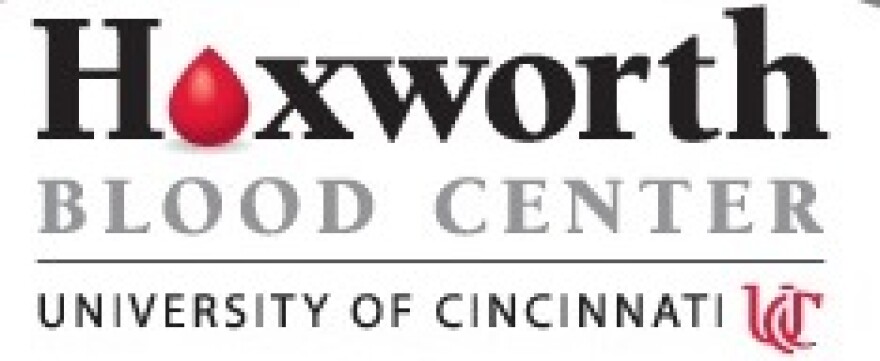A weekend newspaper headline said blood banks are changing their approach as demand slips. It reported fewer elective surgeries and better technology are reducing the amount of blood that needs to be collected. Some centers around the country are even laying off staff because of the shrinking demand.
Hoxworth Blood Center Director, Dr. Ronald Sacher said that’s not necessarily the case in Greater Cincinnati.
“Although we’ve seen a 5 percent drop in request for blood, that’s red blood cell components, the Hoxworth Blood Center still has a consistent need for blood donors,” Sacher said. “The tri-state is not self-sufficient. Last year we had 7,000 blood products obtained from other blood centers in the United States.”
Hoxworth has not laid off any staff. Sacher says it has reduced expenses and implemented some operational efficiencies to save money.
He said the center needs to collect 350 units of red cells and 40 units of platelets every day in order to meet the demand of the 30 hospitals it serves. Hoxworth does make targeted appeals to local donors.
“For example, the demand for platelet products is rapidly growing in the tri-state area,” Sacher said. “You know this is one of the leading cancer treatment centers for children. And we have several bone marrow transplant and organ transplant programs. The demand for other blood components is very high amongst those patients.”
Sacher said there may actually be an increase in the need for blood in the coming years because of aging baby boomers and further medical advances.
“There’s increasing sophistication of medical treatments for cancers and other types of disorders, so I think that this trend will be reversed to some degree,” Sacher said. “And to what degree we don’t know. There’s been speculation that the U.S. population is expected to swell by 10 percent over the next 10 years. The major donor population, which is ages 16 to 64, will only increase by about 5.2 percent.”
Sacher said local residents should not think their blood donations are not needed. He said maybe in a century’s time there will be bio-reactors making blood, but until then there's no substitute for healthy donors.



